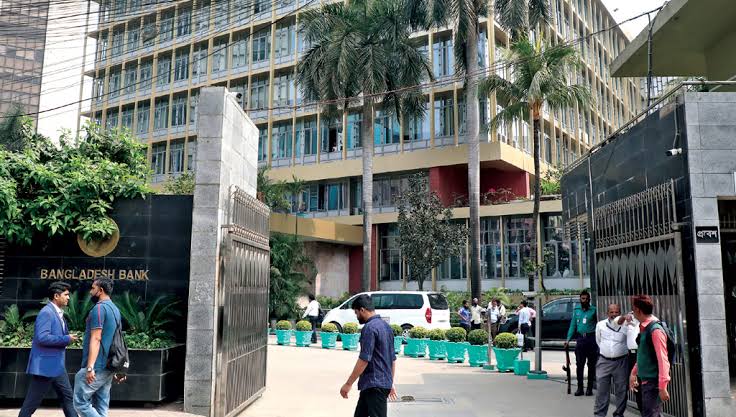03/05/2026

Now recommendation placed to merge state-owned banks
Special Correspondent | Published: 2025-09-29 13:50:05

Bangladesh Bank has proposed merging weak state-owned banks as part of its efforts to speed up reforms in the banking sector, following similar measures taken with private banks.
The governor of the central bank has already forwarded these recommendations to the Ministry of Finance.
According to the proposal, merging a struggling bank with Sonali Bank would not demand extra capital, as Sonali Bank possesses adequate liquidity.
It is learned that Bangladesh Bank Governor Dr. Ahsan H. Mansur made the recommendation at a meeting on banking sector reforms held last week.
The meeting was organized by the Financial Institutions Division and attended by the Finance Adviser, Finance Secretary, Secretary of the Financial Institutions Division, and other senior officials.
At the meeting, the governor stated that the central bank has already initiated the merger process for First Security Islami Bank, Global Islami Bank, Union Bank, Social Islami Bank, and EXIM Bank, which is now at an advanced stage. He further suggested that any weak state-owned bank could be merged with Sonali Bank.
According to Bangladesh Bank sources, the number of banks in the country has increased from 18 in 1972, just after independence, to 62 in 2025. Under the leadership of Ahsan H. Mansur, the central bank has already taken several measures to restore discipline in the banking sector, which has been plagued by long-standing mismanagement, rising non-performing loans (NPLs), scams, and irregularities. By the end of December 2024, total NPLs stood at Tk 3.45 trillion, which rose to nearly Tk 4 trillion by March 2025. Of this amount, six state-owned banks—Agrani Bank, Bangladesh Development Bank, BASIC Bank, Janata Bank, Rupali Bank, and Sonali Bank—account for Tk 1.46 trillion, or 36.5 percent of total NPLs. In some state-owned banks, as much as 75 percent of their total loans have turned non-performing.
The Bangladesh Bank report shows that Janata Bank has the highest amount of NPLs at Tk 70,846 crore, accounting for about 75 percent of its total loans. Agrani Bank has Tk 29,721 crore in NPLs, Sonali Bank Tk 19,091 crore, and Rupali Bank Tk 17,122 crore.
On this issue, the governor said that Bangladesh Bank has already submitted a report on state-owned banks to the government, and the final decision rests with the government.
He reiterated that merging a weak bank with Sonali Bank would not require additional investment due to Sonali’s strong liquidity position. After the merger, the new entity must be managed commercially and free from political interference, with full authority over hiring and firing given to bank management.
Central bank officials also reported that private banks currently hold Tk 2.64 trillion in NPLs, accounting for around 66 percent of the total. Over the past decade, the five most distressed Shariah-based banks—First Security Islami Bank, Global Islami Bank, Union Bank, Social Islami Bank, and EXIM Bank—have been selected for merger.
These banks’ NPLs amount to nearly 72 percent of their total outstanding loans. To facilitate this merger, the government will provide around Tk 20,000 crore, while another Tk 12,000 crore will come from Bangladesh Bank’s Depository Insurance Fund.
The newly formed institution will be operated like a private entity, with a plan to move toward a sale to foreign buyers within the next three years.
Editor & Publisher : Md. Motiur Rahman
Pritam-Zaman Tower, Level 03, Suite No: 401/A, 37/2 Bir Protik Gazi Dastagir Road, Purana Palton, Dhaka-1000
Cell : (+88) 01706 666 716, (+88) 01711 145 898, Phone: +88 02-41051180-81